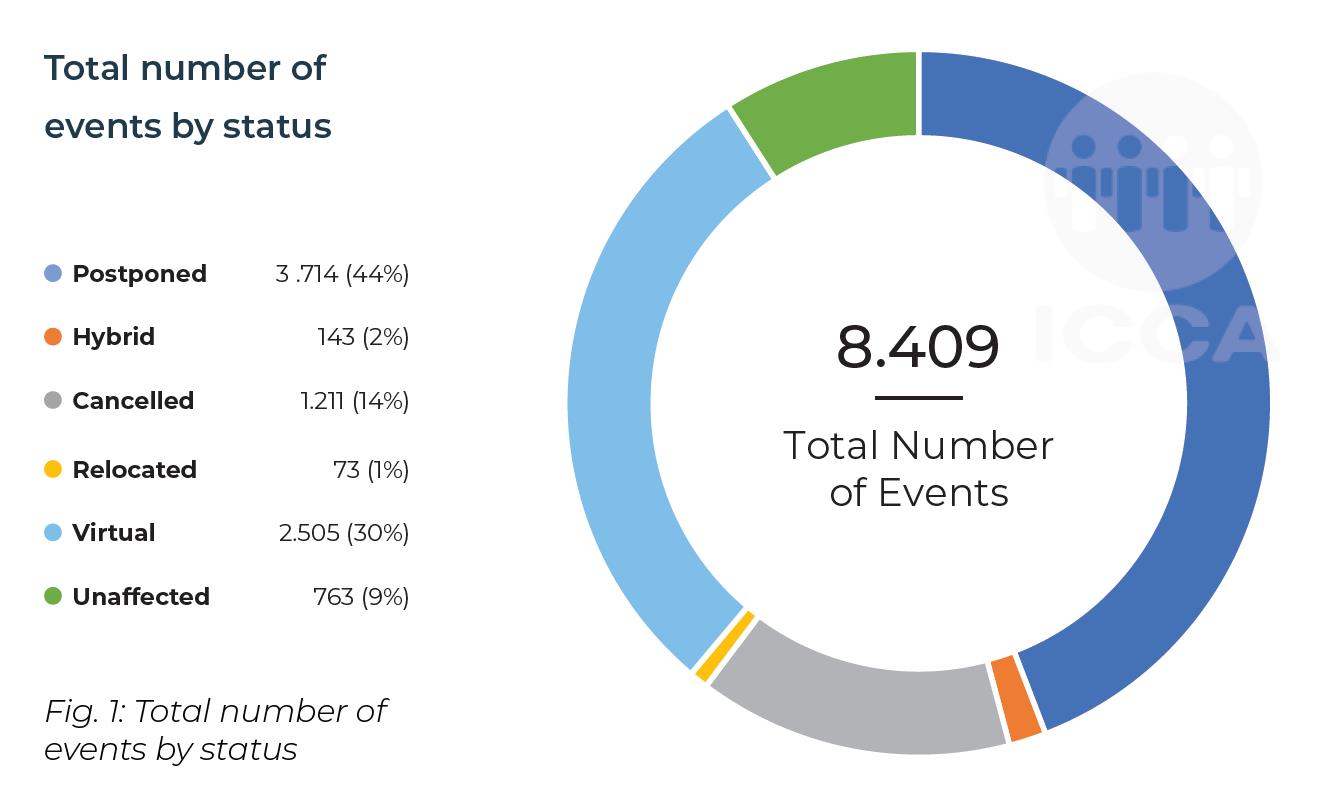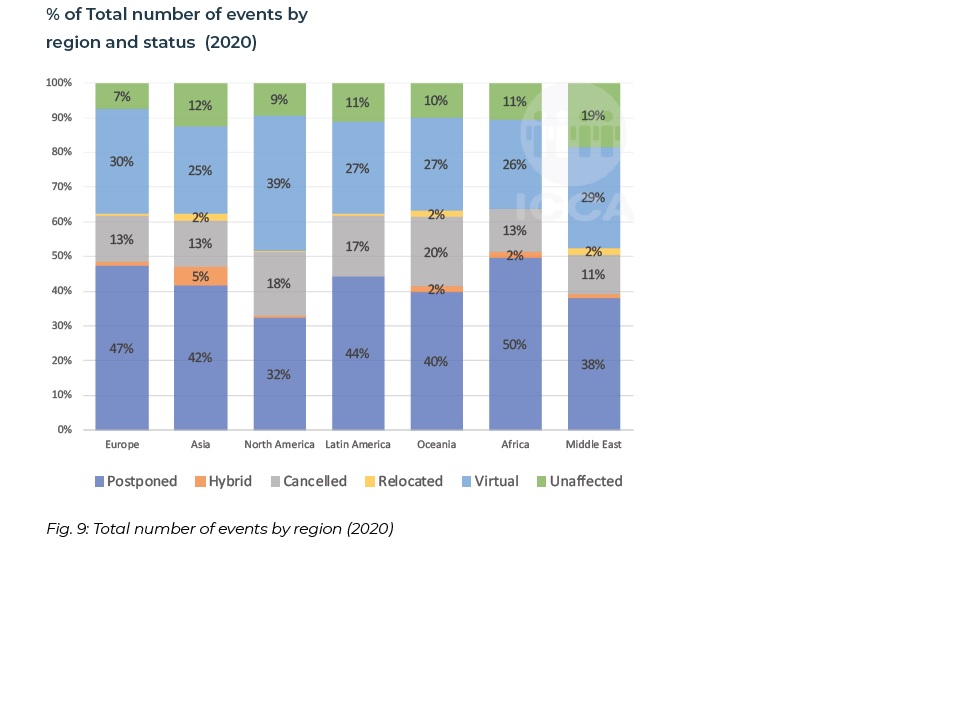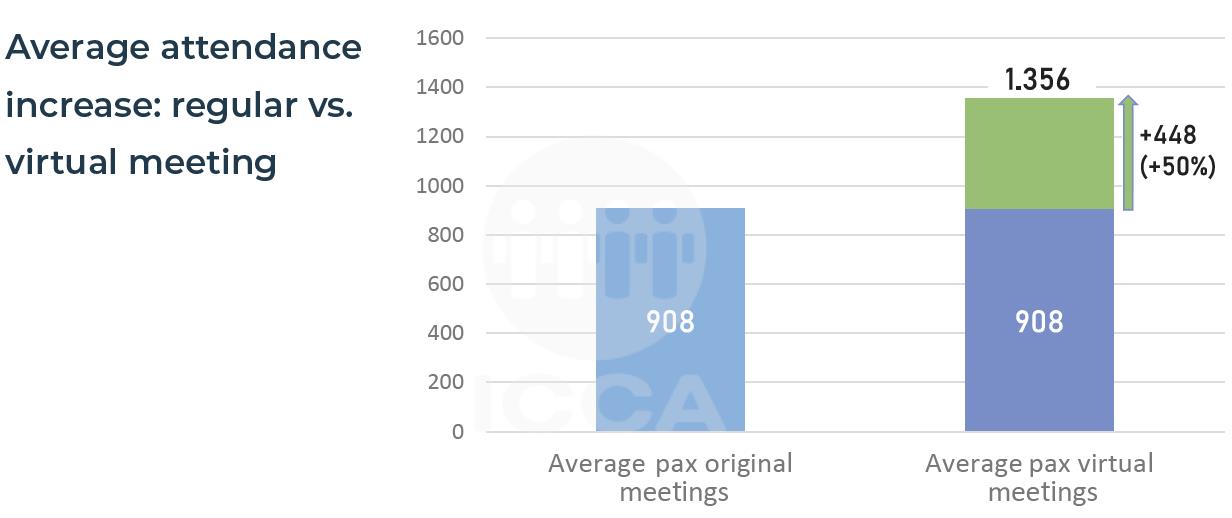The 2020 ICCA Report also provides an analysis of the economic impact, loss of revenue and other key parameters. A comparative examination between the years 2019 and 2020 highlights the need for the sector to make choices, such as hybrid or virtual congress, to "save what can be saved"; on the other hand, the very same 2020 results show the strong desire of the sector to return to face to face meetings. Whatsoever, it is likely that in the future a lot of meetings will continue to include elements and best practices born from some positive aspects that virtual and hybrid events put in evidence. Actually, it's a matter of fact that, at least in certain sectors (e.g. in technological sciences and humanities fields), virtual and hybrid events have helped associations to expand the audience and retain more members.
On the side, a comparative chart showing the increase number of participants at virtual conferences compared to those attending the face-to-face ones.
In summary, ICCA Statistics Study 2020 shows that during last year, the sector suffered the state of lockdown due to Covid-19. At the same time, thanks to hi-tech solutions together with the experience of the operators, local resources and know-how, it has been possible to restart congress activities. And what about the future? Presential? Virtual? Hybrid? As always, reality and concrete needs will eventually make us understand the most suitable solutions case by case.



